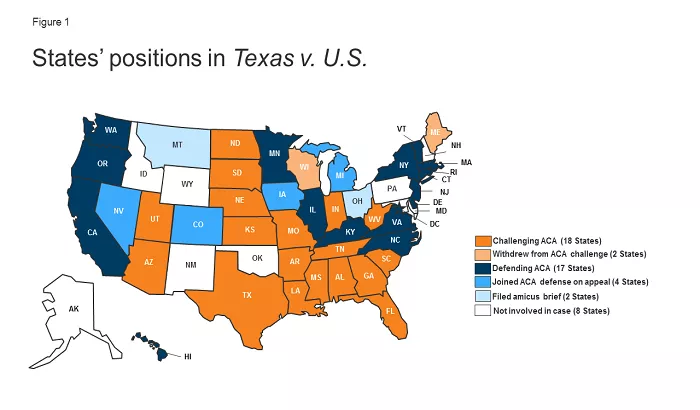In December 2020, the state of Texas filed a lawsuit challenging the presidential election results in four battleground states. This legal action garnered support from several other states and numerous Republican officials. Understanding the dynamics of this lawsuit provides insight into the political landscape during that period.
Overview of the Texas Lawsuit
On December 8, 2020, Texas Attorney General Ken Paxton filed a lawsuit directly with the U.S. Supreme Court against Georgia, Michigan, Pennsylvania, and Wisconsin. The suit alleged that these states had made unconstitutional changes to their election laws, which affected the outcome of the 2020 presidential election. Texas argued that these states’ actions diluted the votes of other states, including Texas.
States That Formally Supported Texas
Several states formally expressed support for Texas’s lawsuit by filing amicus briefs or motions to join the case:
- Missouri: Led by Attorney General Eric Schmitt, Missouri was among the first to back Texas’s legal challenge.
- Arkansas: Attorney General Leslie Rutledge announced Arkansas’s support, emphasizing concerns about election integrity.
- Louisiana: Attorney General Jeff Landry joined the lawsuit, citing the need for uniform election procedures.
- Mississippi: Attorney General Lynn Fitch expressed support for Texas’s efforts to address alleged election irregularities.
- South Carolina: Attorney General Alan Wilson added South Carolina’s name to the list of supporting states.
- Utah: Attorney General Sean Reyes joined the lawsuit, highlighting the importance of constitutional adherence.
These six states formally joined Texas in its Supreme Court suit against Georgia, Michigan, Pennsylvania, and Wisconsin.
Additional States Filing Amicus Briefs
Beyond the six states that formally joined the lawsuit, several others filed amicus briefs in support of Texas’s position:
- Alabama: Attorney General Steve Marshall filed an amicus brief supporting Texas’s challenge.
- Florida: Attorney General Ashley Moody expressed support through an amicus brief.
- Indiana: Attorney General Curtis Hill joined the amicus brief backing Texas.
- Kansas: Attorney General Derek Schmidt filed an amicus brief in support.
- Montana: Attorney General Tim Fox added Montana’s support via an amicus brief.
- Nebraska: Attorney General Doug Peterson joined the amicus brief supporting Texas.
- North Dakota: Attorney General Wayne Stenehjem filed an amicus brief in favor.
- Oklahoma: Attorney General Mike Hunter expressed support through an amicus brief.
- South Dakota: Attorney General Jason Ravnsborg joined the amicus brief backing Texas.
- Tennessee: Attorney General Herbert Slatery filed an amicus brief supporting Texas’s position.
- West Virginia: Attorney General Patrick Morrisey added West Virginia’s support via an amicus brief.
In total, seventeen states filed amicus briefs supporting Texas’s lawsuit.
Opposition to the Lawsuit
The lawsuit faced significant opposition:
- Defendant States’ Response: The attorneys general of Georgia, Michigan, Pennsylvania, and Wisconsin criticized the lawsuit, arguing that Texas had no standing to challenge other states’ election results.
- Other States’ Opposition: A coalition of 23 attorneys general, led by District of Columbia Attorney General Karl Racine, filed briefs opposing Texas’s lawsuit, asserting that it lacked legal merit and evidence.
Supreme Court’s Decision
On December 11, 2020, the U.S. Supreme Court dismissed Texas’s lawsuit, stating that Texas lacked standing to challenge the election procedures of other states. The Court concluded that Texas had not demonstrated a judicially cognizable interest in how other states conduct their elections.
Political Implications
The lawsuit highlighted deep political divisions in the United States:
- Republican Support: Over 100 Republican members of the House of Representatives signed an amicus brief supporting Texas’s lawsuit, reflecting widespread support within the party.
- Democratic Opposition: Democratic officials and legal experts criticized the lawsuit as an attempt to undermine the democratic process.
Conclusion
The 2020 Texas lawsuit against Georgia, Michigan, Pennsylvania, and Wisconsin was a significant event in U.S. political history. It received formal support from six states and amicus briefs from eleven others, reflecting deep political divisions and debates over election integrity. The Supreme Court’s dismissal of the case underscored the challenges of inter-state legal disputes concerning election procedures.

